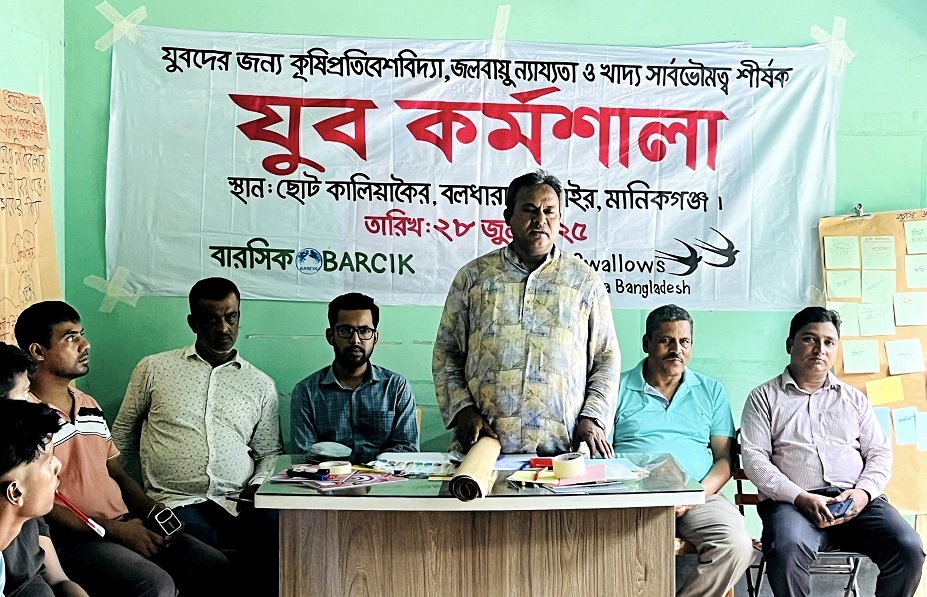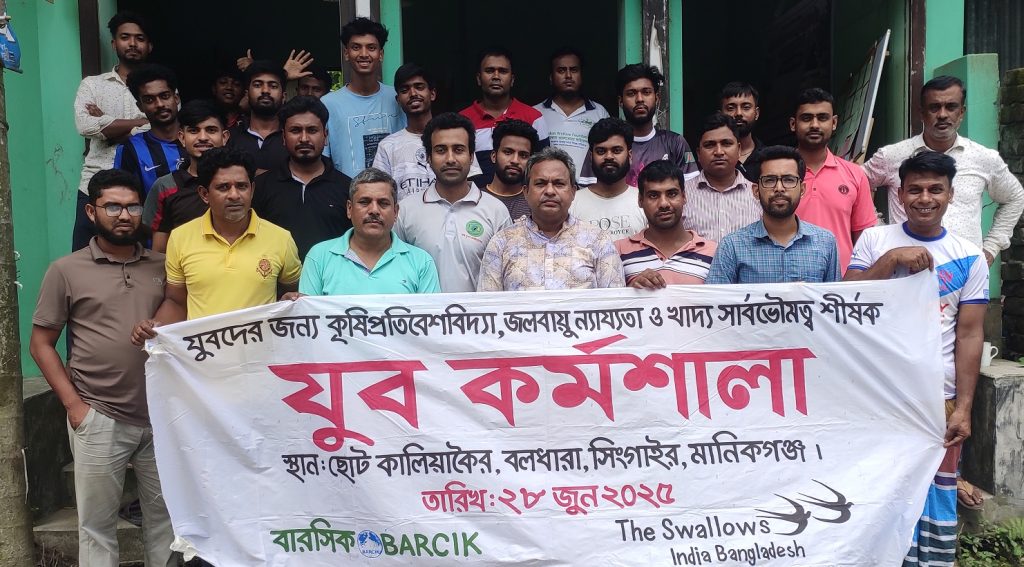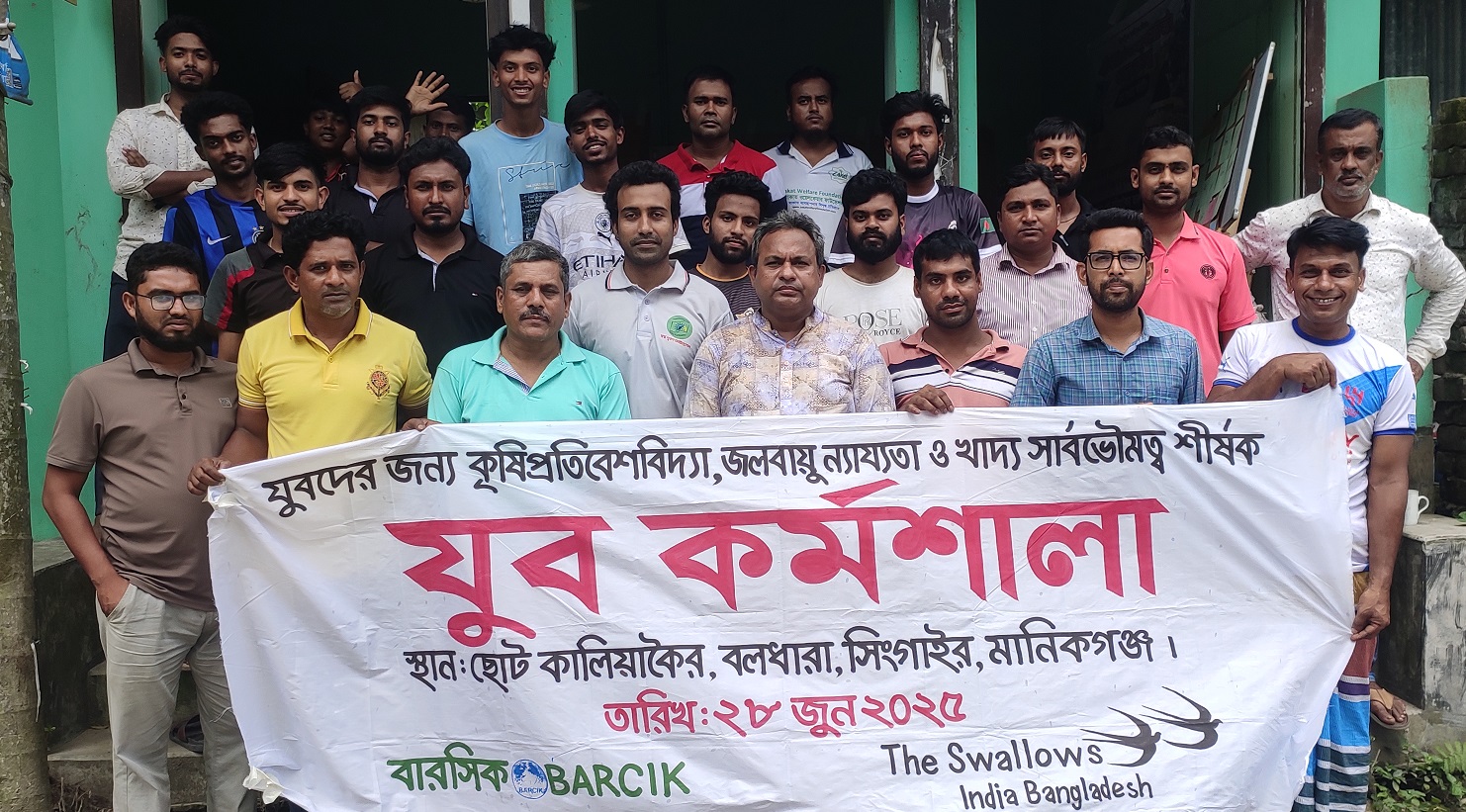Shahinur Rahman from Singair, Manikganj
A youth workshop on agroecology, climate justice, and food sovereignty was recently held in Choto Kaliyakoir village of Baldhara Union, Singair Upazila arranged by BARCIK where 25 youths from different areas of Manikgonj participated.
The workshop was presided over by Mostafizur Rahman Biswas Milon, Joint Convenor of Manikganj District Green Coalition.

Sessions on agroecology, climate justice, and food sovereignty were facilitated by BARCIK Regional Coordinator Bimal Roy and Program Officer Shahinur Rahman, with support from trained youth representatives including Miraj Ahmed.
Through group exercises, participants discussed local resources, traditional farming knowledge, and the relationship between agriculture and the natural environment. The concept of agroecology was introduced as the integration of environmental elements into farmers’ own cultural systems, helping maintain sustainable farming practices.
Facilitators explained that agroecology is both a scientific approach and a social movement critical for transforming food systems sustainably. They emphasized that practicing agroecology is essential for achieving climate justice.
Participants also explored the impacts of climate change in their area, identifying recent damages and injustices. Climate justice was described as planning and action that considers people’s cultural, social, political, and economic rights while addressing the causes and effects of climate change. Youth were urged to develop skills, promote awareness, and conserve local resources such as soil, water, and air through family and community tree planting.
During the food sovereignty session, participants listed local crops and farming tools, discussed farmers’ freedom of choice, market dependence, and corporate influence. Facilitators explained that food sovereignty means local control over food production, distribution, and consumption, and stressed that agroecology is the driving force for achieving it.
In feedback sessions, youth participant Siddiqur Rahman said, ‘Farmers once managed agriculture based on local resources and their own calendars but now face growing dependency on chemicals and corporate products.’ He urged greater youth involvement in nature-based farming and public awareness campaigns.

Miraj Ahmed said: “We demand climate justice. We didn’t cause climate change then why should we bear the cost? Those responsible must cut carbon emissions and compensate affected countries.”
Abid Hossain Kajol stated, “We have only one Earth. Young people must lead in making it livable. We are not highly responsible for climate change, but we are among the most vulnerable.”
Mostafizur Rahman Biswas Milon while reflecting on the outcomes of the workshop said, “Today’s workshop showed us that practicing agroecology is essential to achieving climate justice. We must use local resources sustainably, ensure farmers’ rights and choices, and demand compensation from the countries who are most responsible for the climate crisis.”

